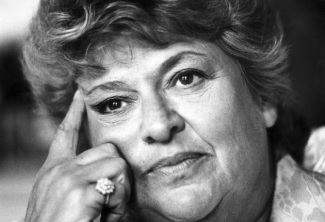

The writer, TV and radio personality and social campaigner, Claire Rayner, best known for her agony aunt columns, spent most of her life helping others in one form or another. Constantly running away as a child, Rayner had a desire to work as a nurse from a young age, becoming a cadet nurse when she was just 14 years old. As she grew older she advocated passionately for the NHS and turned to journalism as a way of teaching the public about health, relationships, sex, and family life. When she started to get involved in radio and TV broadcasting, her husky voice made her stand out amongst other personalities and she quickly became a favourite amongst the public. A staunch atheist, Rayner was the president of the British Humanist Association (now Humanists UK) and was highly influential in promoting humanist values in education and relationships.
Claire Rayner was born on 22 January 1931 in London. Like many children living in London during the war, Claire was evacuated to Dartmoor. However, because she kept running away, she was allowed to stay in London. She won a scholarship to the City of London Girls School, but again due to the war, the school relocated to Yorkshire. Despite thoroughly enjoying attending the school, Claire was moved to Skinners Company School in Welwyn Garden City, which she hated, and from which she eventually ran away. Lying about her age (she pretended to be 17 rather than her actual age of 14), Rayner became a cadet nurse at Epsom Cottage but had to leave when her actual age was discovered. She then had a couple of other nursing jobs for two years, before reuniting with her family who had moved to Canada.
After refusing to attend school in Canada, Rayner joined the Salvation Army at the maternity hospital in Toronto. Running away once more, this time to Vermont and New York, she worked as a waitress and in a repertory theatre before becoming ill and having to return to Toronto. Rayner was placed in a psychiatric hospital for 15 months before she was diagnosed with Graves’ disease and was moved back to England for treatment in the newly established NHS. After having surgery in 1951, Rayner’s voice had become rather husky, which she became known for when she was a broadcaster. She then trained as a nurse and completed a postgraduate course in midwifery. Rayner started to begin the qualifications for a doctorate, however, after meeting her future husband Desmond Rayner, she stopped her education and became a nurse. The two married in 1957. Here, Claire started to write to and for nursing magazines such as the Nursing Mirror and Nursing Times.
Claire gave birth in 1960, and expanded her writing to include book reviews and health articles. She wrote her first book in 1962 (Mothers and Midwives), and soon started to gain more contracts for journalism. Under the alias Sheila Brandon, Rayner wrote seven hospital romances and started to appear on television, most notably for the BBC’s Town and Around. From here, her popularity grew and she began her series titled Claire Rayner’s Casebook, which dealt with relationship issues and got her into mainstream agony aunt columns. In 1966, after writing various columns, Rayner took over Ruth Martin’s health column in Women’s Own and stayed there until 1975. Rayner wrote columns for a range of newspapers over her career: The Sun (1973-1980), The Sunday Mirror (1980-1988) and Today (1988-1992). During this time she also became a patron of over 100 charities, organisations and committees, and in 1995 became an associate non-executive director of the Royal Hospitals NHS Trust. Other honours included: an OBE in 1996, a Freeman of the City of London in 1981, an Honorary Fellow of North London Polytechnic in 1988, as well as various honorary doctorates and the Lifetime Achievement Award of the Medical Journalist Association in 2008.
A lifelong atheist, Rayner served as the President of the British Humanist Association from 1999-2004 and as a Vice President from 2004-2010. Rayner was also an honorary associate of the National Secular Society. After being diagnosed with breast cancer in 2001 she became an activist for Cancer Research UK in 2002. In 2004, after a near-death experience from a routine operation, Claire denied seeing God and instead suggested that her hallucinations (which were mainly coloured lights) was simply down to a lack of oxygen. Claire Rayner died on 11 October 2010.
I was a humanist without knowing it for many years before I found the Association – when I did, it was like finding a sort of home.
Although most renowned for her relationship advice and agony aunt columns, Claire Rayner was highly influential in advocating humanism in the UK. Rayner contributed to the British Humanist Association’s practical guide to humanist weddings, Sharing the Future, by writing the foreword, and applied her deeply felt humanism to the thoughtful, compassionate advice she gave throughout her career. She also campaigned against the Blasphemy Law and the teaching of creationism in schools. Two years before her death in 2008, she contributed to the campaign which sought to have humanism taught alongside religion in the school curriculum. Rayner believed:
Children must be allowed to learn about Humanism as a belief system as well as about religions as belief systems… The humanist view of things is positive and offers much to a properly-rounded education about modern beliefs and values.
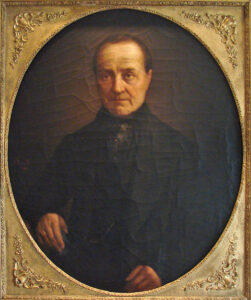
Auguste Comte was a French writer, philosopher, and social scientist, whose theory of positivism was a significant influence on the […]
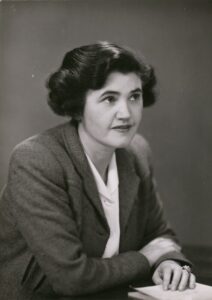
Jennie Lee (also known as Baroness Lee of Asheridge) was a Scottish politician and journalist, known for her upfront orating […]
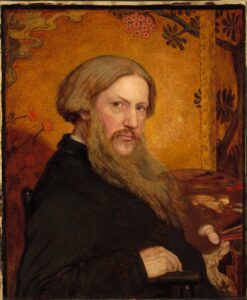
A cheerful and reverent Agnostic, whose whole life was one of unselfishness and devotion to lofty aims, who was tolerant […]
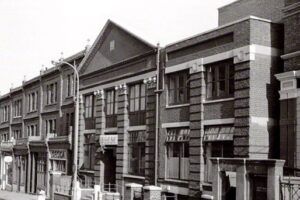
The object of this Society is: To increase the knowledge, the love, and the practice of the right. Its bond […]